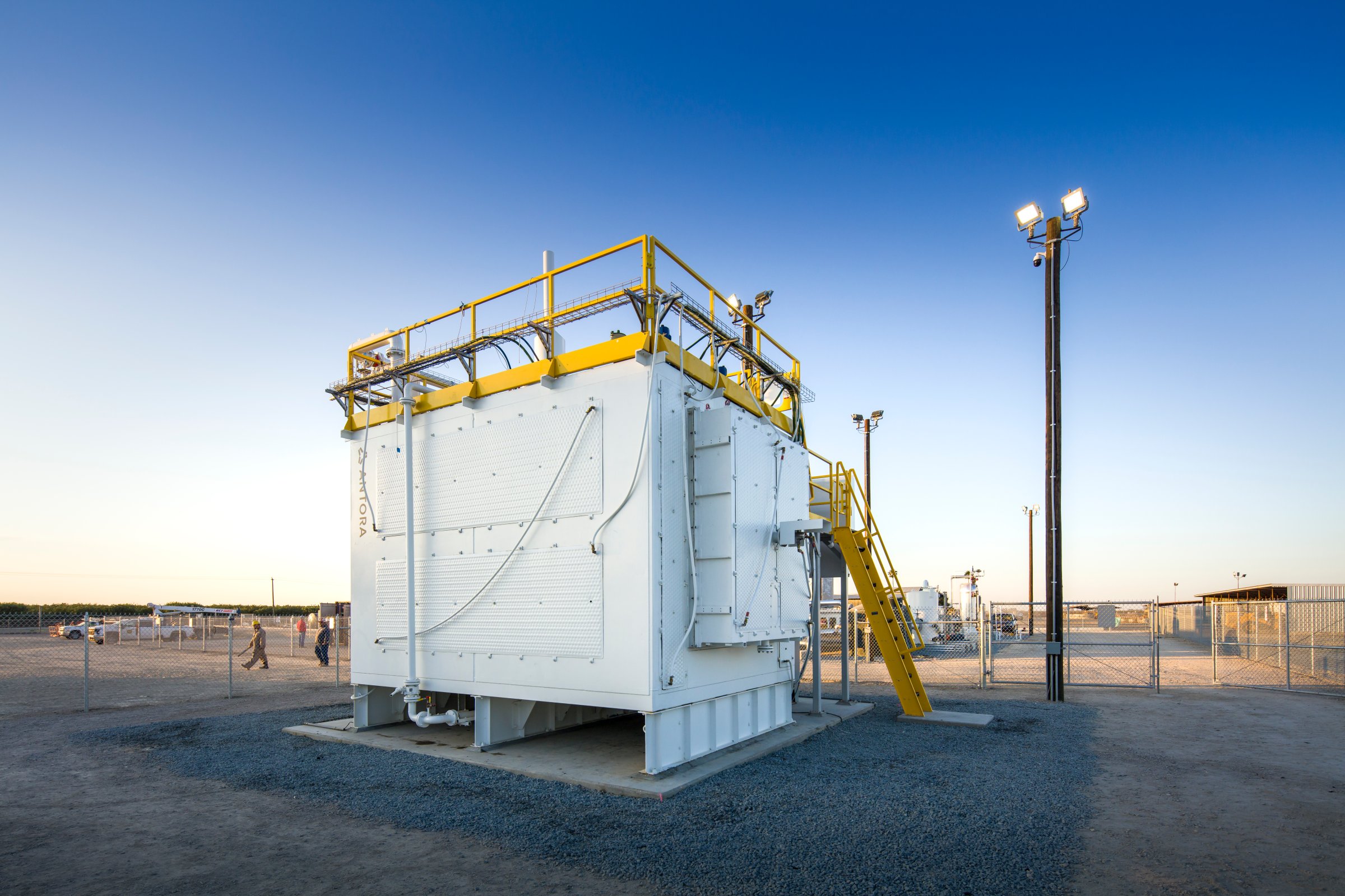
Antora Energy, a Bill Gates-backed startup with a bold pitch to use blocks of solid graphite to make heat-storing batteries, announced today that it will be opening its first factory in San Jose, Calif. Should the technology gain traction it could have a big effect on cutting fossil fuels from some of the world’s most difficult to decarbonize industries.
Industries from paper production to concrete-making require a great deal of heat, which, to date, is typically supplied by fossil fuels like oil and natural gas. Up until a few years ago, the idea of a factory buying electricity and then converting it into heat (akin to a toaster or convection stove) would have been laughable—electricity was simply too expensive.
But U.S. developers have been building cheap solar and wind energy projects at breakneck speed in recent years as the cost of those technologies drops precipitously. The result is that, at least when the wind is gusting or the sun is especially bright, electricity can be incredibly cheap—cheap enough for it to make sense for factories to convert it into the heat they need. The problem, though, is that most big industrial facilities run 24 hours a day, which leaves them without options once the sun goes down or the wind stops blowing.

Antora’s thermal batteries are meant to solve that problem. Essentially, their system is an insulated box, filled with stacks of graphite, the black material used in pencils, and coils that convert electricity to heat. When power is plentiful, those coils can heat up the graphite blocks to a glowing, white-hot temperature of over 2,700°F. The graphite can then store that heat and release it continuously for 50 hours as a beam of heat and light through a window in the side of the container. That heat could then be used to, say, heat a limestone kiln to make cement.
The goal is for their thermal batteries to be cheaper to operate than using fossil fuels. The company tested out its first full-scale pilot plant at an industrial site in Fresno, Calif., last month. Justin Briggs, Antora’s co-founder and COO, says the new factory will begin producing thermal batteries next year, though Briggs was tightlipped on naming customers. (The company has technology that will allow its batteries to output both heat and electricity, but the current factory will produce batteries that output only heat at first.) He says the units are simple to make: the graphite blocks, for instance, are a cheap and common industrial material.
“There's blocks of carbon, there's insulation, there's a steel shell, there are some surrounding instrumentation, and other components,” Briggs says. “Because of that, we're able to manufacture these things quite rapidly.”
More Must-Reads from TIME
- Where Trump 2.0 Will Differ From 1.0
- How Elon Musk Became a Kingmaker
- The Power—And Limits—of Peer Support
- The 100 Must-Read Books of 2024
- Column: If Optimism Feels Ridiculous Now, Try Hope
- The Future of Climate Action Is Trade Policy
- FX’s Say Nothing Is the Must-Watch Political Thriller of 2024
- Merle Bombardieri Is Helping People Make the Baby Decision
Write to Alejandro de la Garza at [email protected]